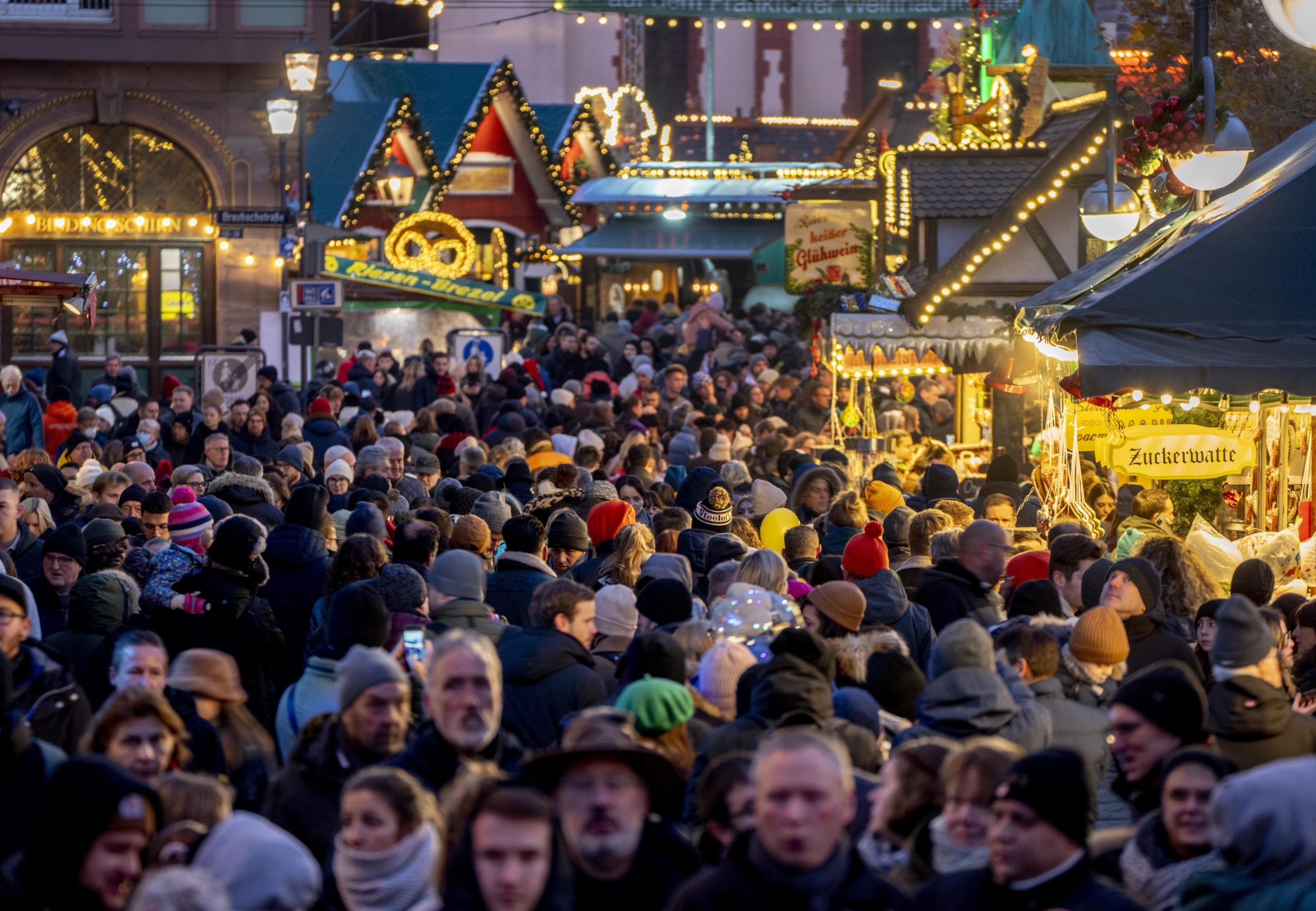Experts and ordinary people around the world predicted that the economy would rebound strongly again after two years of pandemic and stagnation. Instead, the year 2022 was marked by a new war, record inflation and climate-related disasters – that is, a very complex economic crisis – the so-called multiple crisis.
And so you just have to brace yourself — because the economists don’t think it’s going to get any better next year.
– The number of crises has increased since the beginning of this century, says Roel Petsma, professor of macroeconomics at the University of Amsterdam.
– Since World War II, we have not seen such a complex situationhe adds.
inflation
After the difficult economic crisis that hit the world as a result of the pandemic, prices began to rise sharply in 2021.
Central banks around the world believed that high inflation would be temporary and that it would fall again as economies returned to normal. But then came the Russian invasion of Ukraine at the end of February, with its ensuing energy crisis and soaring food prices.
Therefore, many countries are now experiencing cost of living crises. Wages do not keep pace with inflation, which forces people to make difficult choices in everyday life – many are forced to choose between heat or food.
“Everything is getting more expensive, from dairy products to wine and electricity,” says Nicole Eisermann from her booth at the Frankfurt Christmas Market.
Central banks began raising interest rates in an effort to tame accelerating inflation. But the downside of raising interest rates is the risk of a deeper recession. Higher borrowing costs lead to lower economic activity.
But the procedures helped, too. Inflation has begun to decline in both the US and the Eurozone.
Help must be provided
The Organization for Economic Co-operation and Development, OECD, is urging governments to continue providing assistance to families, who without support will no doubt struggle greatly in the coming year.
The European Union, with its 27 countries, has so far allocated 674 billion euros to the population so that they can deal with very high energy prices. Germany, which has the largest economy in Europe and is the country most dependent on energy supplies from Russia, received €264 billion of the total amount.
One in two Germans answered that they now only want to spend money on important things, according to a survey by the consulting company EY.
“I am very careful about my spending, but I have many children and grandchildren,” says Günther Blum, who buys goods at the Frankfurt Christmas market.
Tight monetary policy
Rising interest rates made it difficult for both consumers and businesses.
The head of the US central bank, Jerome Powell, recently indicated that interest rate easing could come as early as December, but at the same time he warned that monetary policy will remain tight for a longer period.
Christine Lagarde, President of the European Central Bank, has made it clear that the austerity policy will continue. She believes that inflation in the eurozone has not yet reached its peak.
Economists expect Germany and another large eurozone economy, Italy, to enter recession. The British economy has already contracted. Rating agency S&P Global expects a recession in the eurozone in 2023.
However, the International Monetary Fund believes that the global economy will expand in 2023 with a growth of 2.7%. The Organization for Economic Co-operation and Development is a bit more cautious in its outlook, forecasting growth of 2.2 percent.
The Corona pandemic remains an element of uncertainty for the global economy.
China’s zero tolerance for corona infection has limited growth in the world’s second-largest economy, but authorities are now beginning to ease restrictions in the wake of nationwide protests. There is a great deal of uncertainty regarding developments in China.
Climate costs are rising
Although the pandemic remains a major uncertainty ahead, economist Bitsma still believes that climate change poses the biggest crisis – one that is “happening in slow motion”.
Hurricane Ian and other extreme weather events such as winter storms in Europe, floods in Australia and South Africa, and hailstorms in France and the United States caused an estimated $115 billion in insured losses, according to Swiss insurer Swiss Re.
Floods in Pakistan earlier this year caused damages and economic losses estimated at about $30 billion.
During the United Nations Climate Negotiations (COP27) in Egypt in November, the world’s governments agreed to set up a fund to cover losses caused by natural disasters to vulnerable countries in the impoverished part of the world.
But COP27 ended without new commitments to phase out fossil fuel use.
Climate change is a protracted, protracted crisis. If we do not do enough to slow global warming, Beetsma asserts, climate change will affect us on an unprecedented scale.
We undoubtedly face an uncertain future – in the short and long term.

“Coffee trailblazer. Certified pop culture lover. Infuriatingly humble gamer.”




